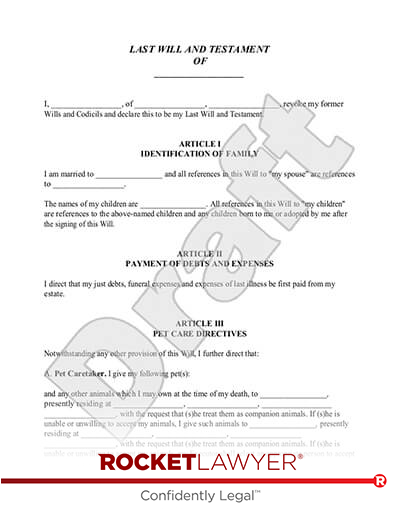Your signature to your last will must be witnessed by two other persons who are also required to sign the will. Some states have restrictions on who can serve as witnesses. In many states, a witness cannot be a beneficiary of the estate. States have adopted these laws to prevent any conflict of interest from those who may be in line for gifts, or who may benefit from your death. Some states will allow for a beneficiary to act as a witness, but in doing so, that witness may lose some or all of the property that he or she would have inherited. Some states also place restrictions on whether or not your designated executor can act as a witness, so again, it's important to check with your sate.
If you think your last will might be contested by your heirs, you may need to get a doctor's note to prove that you were of sound mind when you wrote and signed your will. This will reduce the chances of your last will being overturned in probate court.
In most states, your signature and the signatures of the witnesses need to be notarized.
Related content:
- How to write a will
- What is a living will?
- Will vs. Estate Plan
- Find more information about wills
- Start your will today
This article contains general legal information and does not contain legal advice. Rocket Lawyer is not a law firm or a substitute for an attorney or law firm. The law is complex and changes often. For legal advice, please ask a lawyer.
